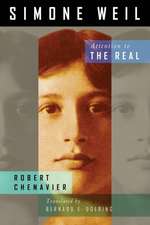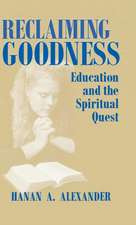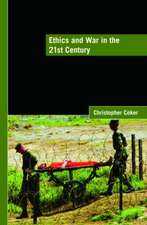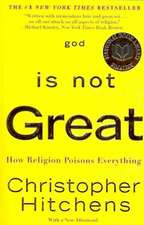The Fullness of Being – A New Paradigm for Existence
Autor Barry Milleren Limba Engleză Paperback – 14 mar 2002
| Toate formatele și edițiile | Preț | Express |
|---|---|---|
| Paperback (1) | 270.77 lei 6-8 săpt. | |
| MR – University of Notre Dame Press – 14 mar 2002 | 270.77 lei 6-8 săpt. | |
| Hardback (1) | 586.13 lei 6-8 săpt. | |
| MR – University of Notre Dame Press – 14 mar 2002 | 586.13 lei 6-8 săpt. |
Preț: 270.77 lei
Nou
Puncte Express: 406
Preț estimativ în valută:
51.82€ • 53.64$ • 43.80£
51.82€ • 53.64$ • 43.80£
Carte tipărită la comandă
Livrare economică 06-20 martie
Preluare comenzi: 021 569.72.76
Specificații
ISBN-13: 9780268035273
ISBN-10: 026803527X
Pagini: 190
Dimensiuni: 152 x 227 x 13 mm
Greutate: 0.3 kg
Ediția:1st Edition
Editura: MR – University of Notre Dame Press
ISBN-10: 026803527X
Pagini: 190
Dimensiuni: 152 x 227 x 13 mm
Greutate: 0.3 kg
Ediția:1st Edition
Editura: MR – University of Notre Dame Press
Recenzii
“This book does a valuable service by clearing up some long-standing confusions on the question whether 'exists' is a meaningful predicate. . . . Barry Miller, well acquainted himself with analytic philosophy, shows cogently that all such objections are based on flawed presuppositions, such as that all real predicates signify a property that inheres in a pre-existing subject, which cannot be true of 'exists.' 'Socrates exists' signifies rather that Socrates is a 'bounded' instance of existence. . . . Miller ingeniously shows how the predicate 'exists' does not signify merely a minimum level of being; it also signifies that by which all the other real properties of anything are constituted as real.” —Theological Studies
"This book proposes a new analysis of the relation between any individual and its instance of existence. This new paradigm replaces construing an individual's instance of existence as inhering in that individual, as, for example, wisdom inheres in Socrates." —The Thomist
“In The Fullness of Being, Miller takes his place alongside Alfarabi, Avicenna, and Aquinas, in arguing that existence is a genuine property. . . . Miller’s work on existence is a remarkable achievement. . . . It should be required reading for those philosophers interested in the topic of existence, and it is a significant contribution to philosophical theology.” —Notre Dame Philosophical Reviews
Notă biografică
Barry Miller is honorary fellow at the University of New England, Armidale, Australia. He is the author of numerous books and articles, including A Most Unlikely God, also published by the University of Notre Dame Press.
Descriere
According to a fairly standard view, there are several reasons for denying that existence is a real property of individuals. One is that 'exists' cannot be predicated of individuals, and another is that first-level properties are parasitic on individuals for their actuality, which is something that existence could never be. A third is that existence adds nothing to individuals. Moreover, even if existence were to survive all three counter-indications, it would be merely the most vacuous of properties. The Fullness of Being, however, argues that this view of existence is seriously awry. In this brilliant book, Barry Miller argues that existence is not merely a real property of individuals, but by far the richest of their properties.
The commonly accepted view of existence is testimony, contends Miller, to what happens when wrong questions are asked, false assumptions are made, and the possibility of a new paradigm for existence is dismissed without consideration. They bear witness to the substantial flaws underlying the familiar claim 'existence is not a predicate' and the Frege-Russell-Quine view not only of 'exists' as exclusively a second-level predicate, but of existence as no more than a Cambridge property of individuals. By way of contrast, The Fullness of Being is an account of what happens when different questions are asked, when false assumptions are eschewed, and when the possibility of a radically different paradigm for existence is actively explored rather than completely ignored. What began for Miller as an exercise in philosophical logic to determine whether 'exists' is predicable of individuals, ends in an argument with groundbreaking consequences for ontology.
"The Fullness of Being is a brilliant and original account of existence. It will be required reading for those philosophers interested in the topic." —Peter Forrest, professor of philosophy, University of New England, Australia














